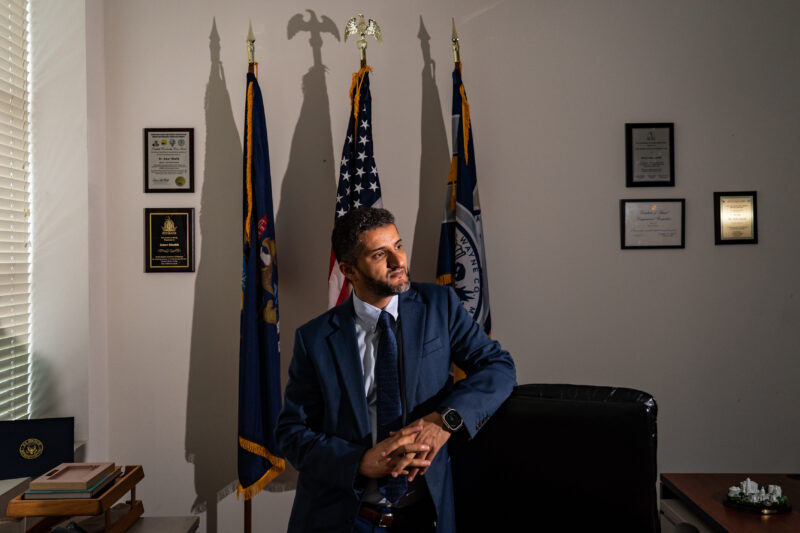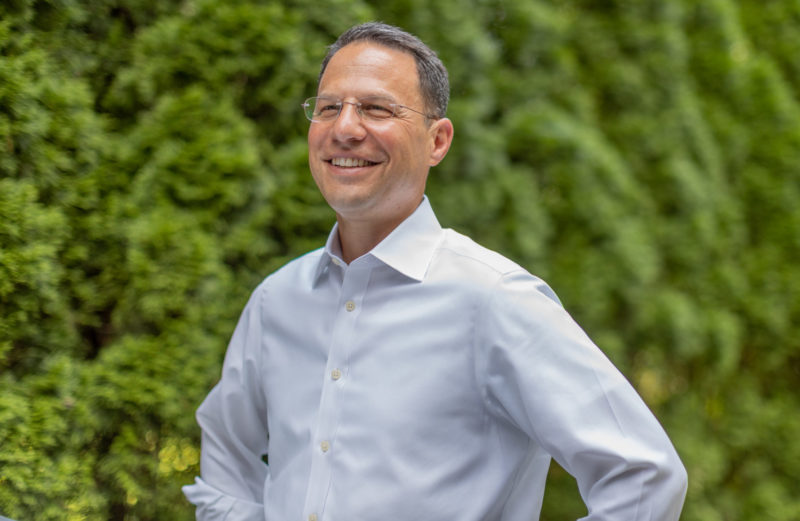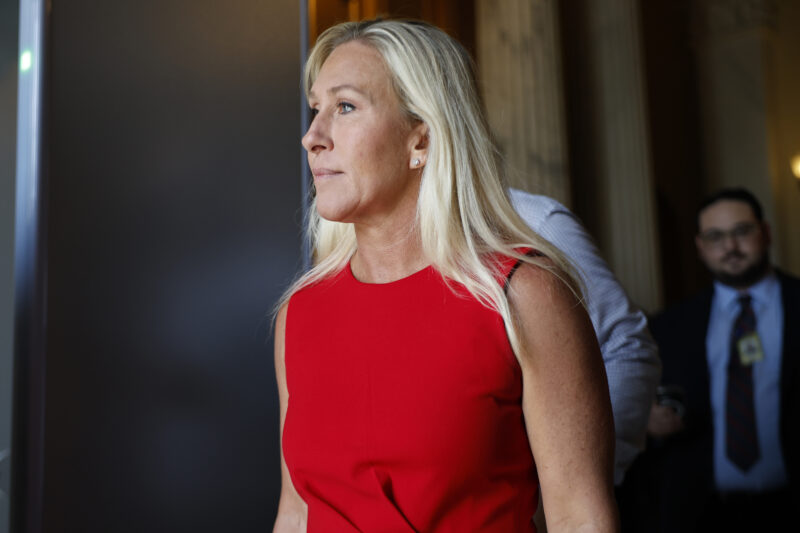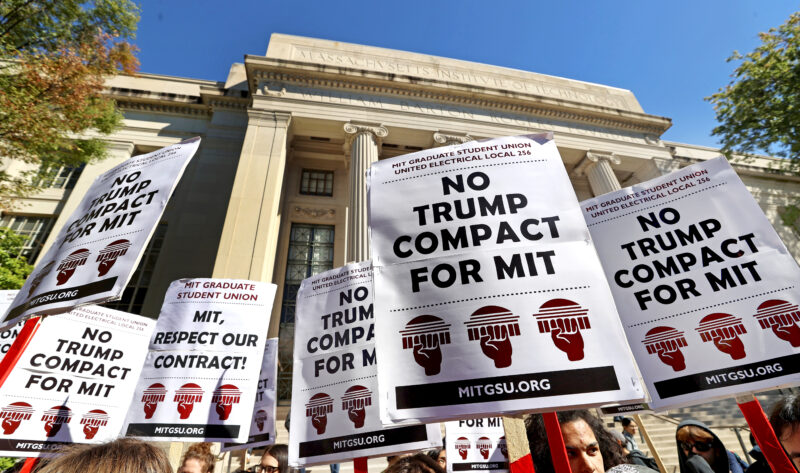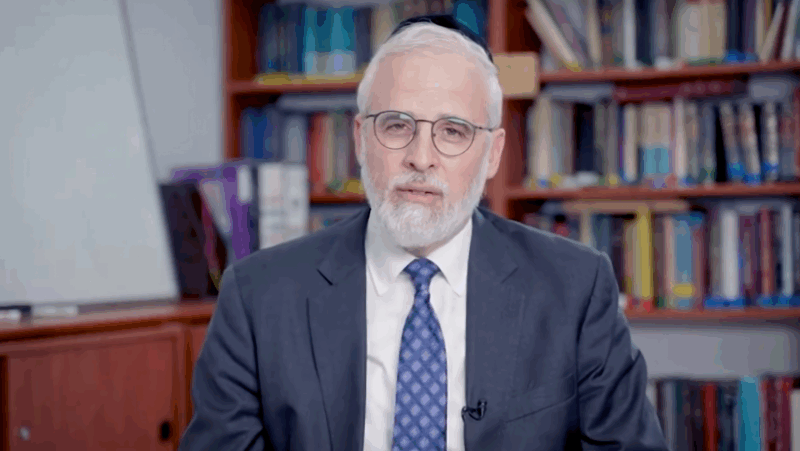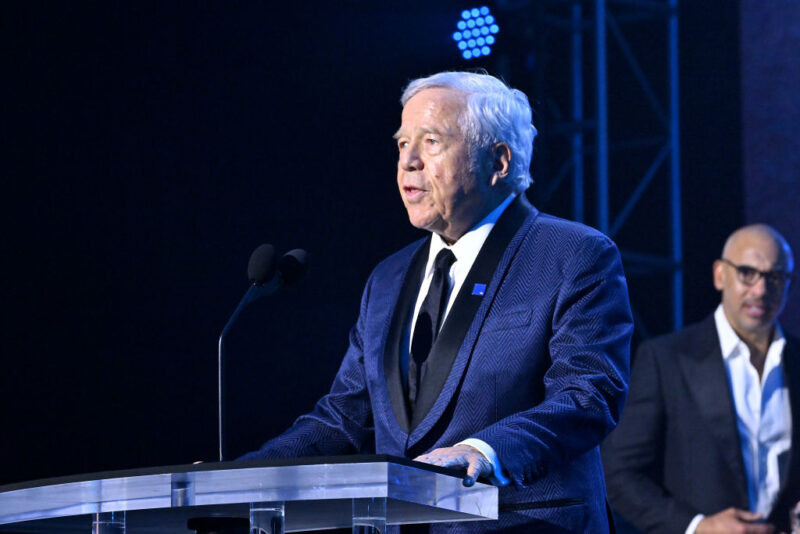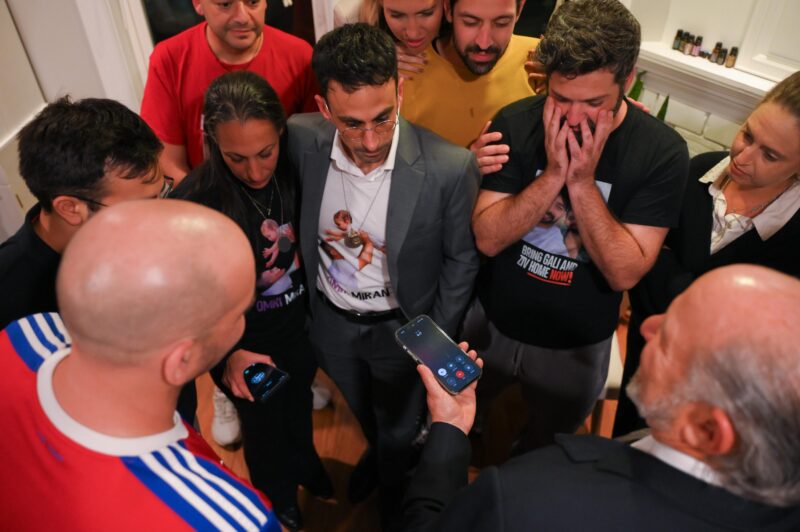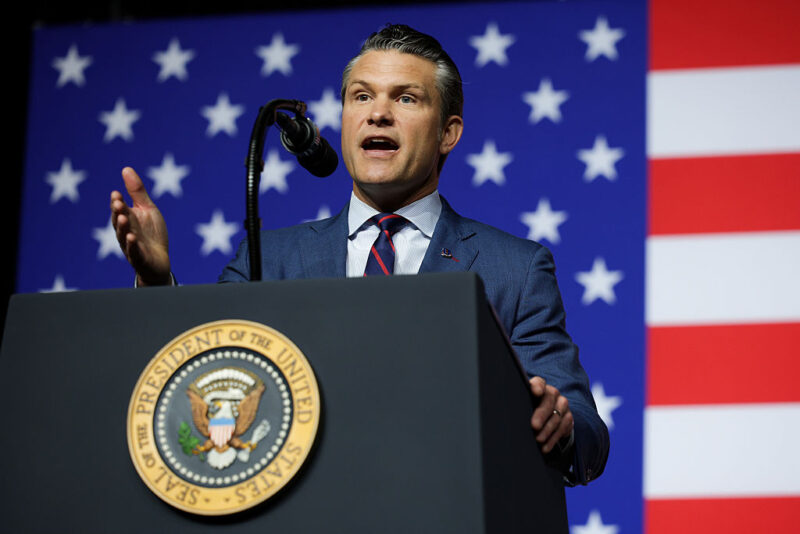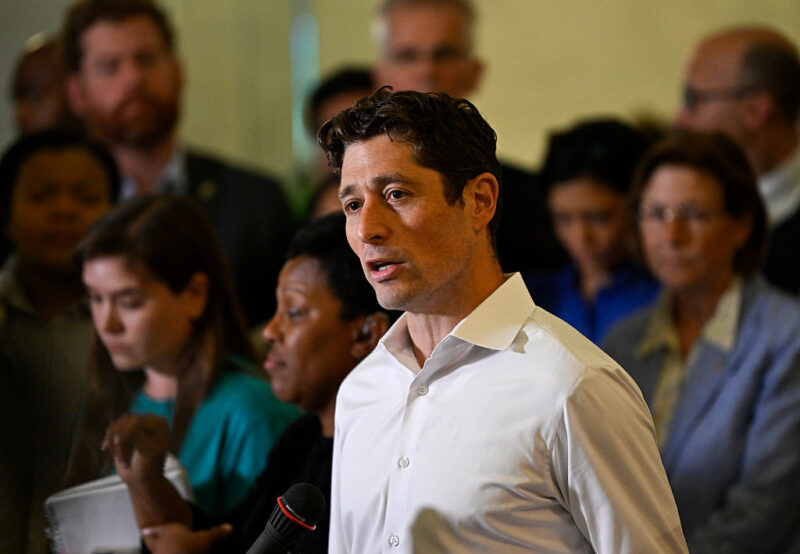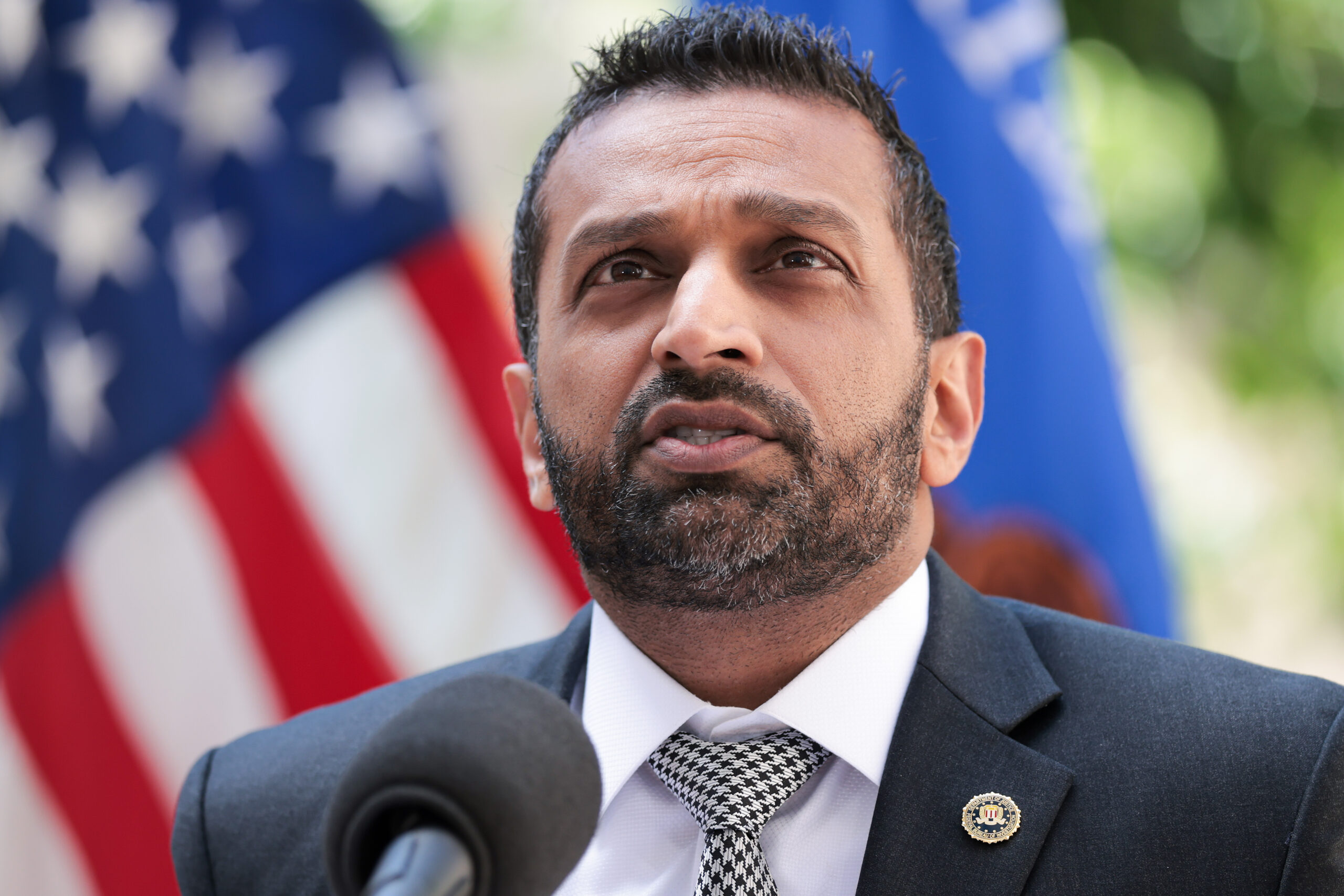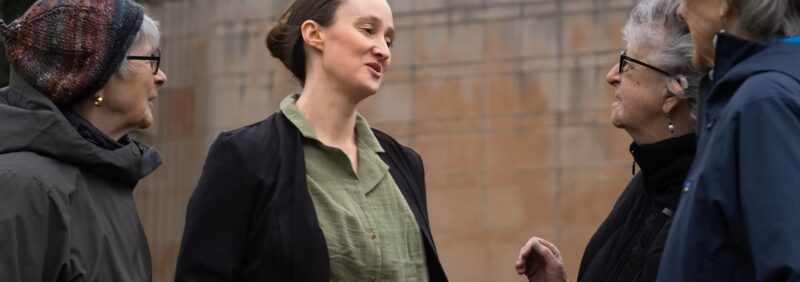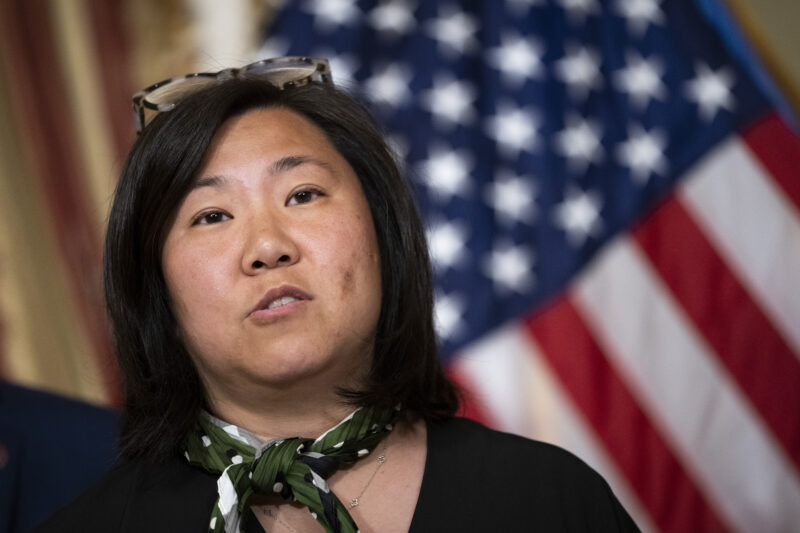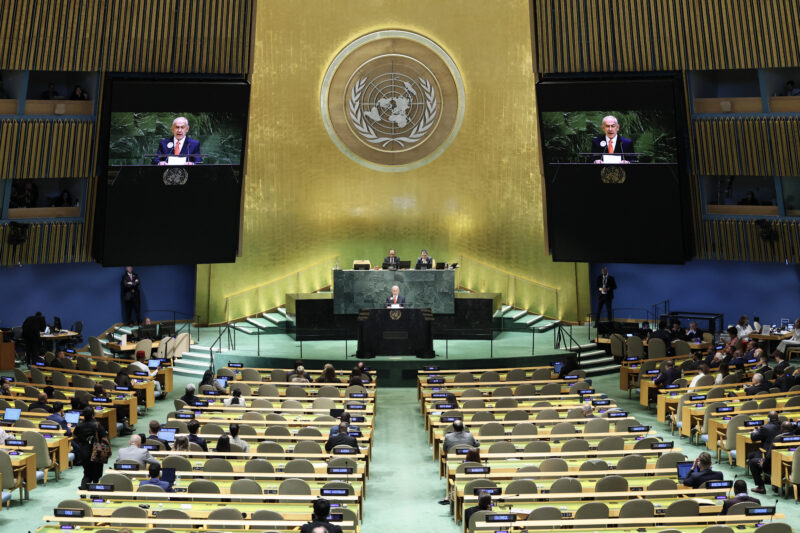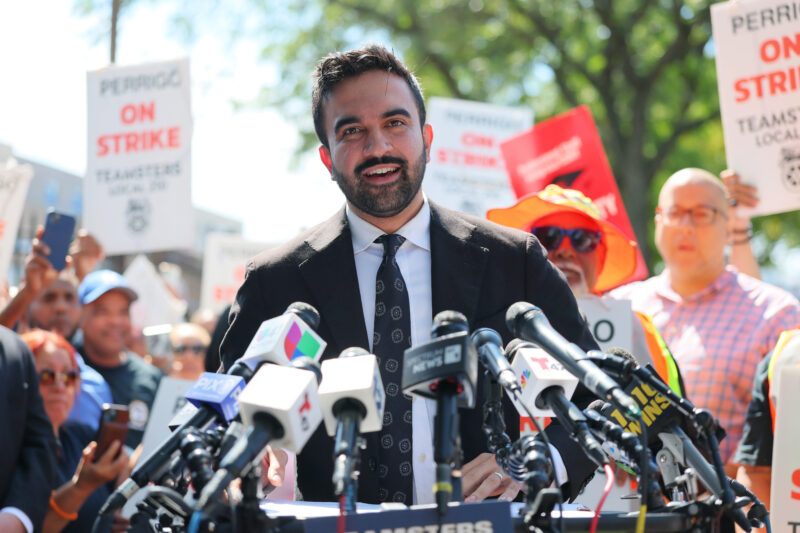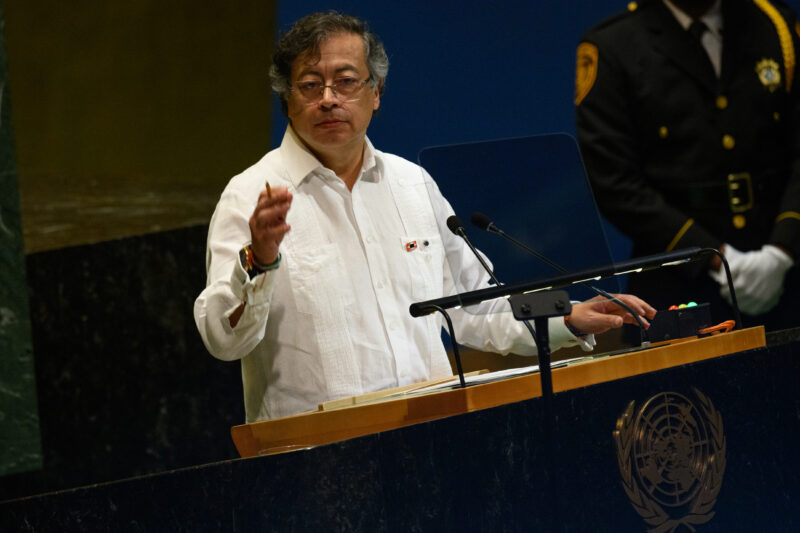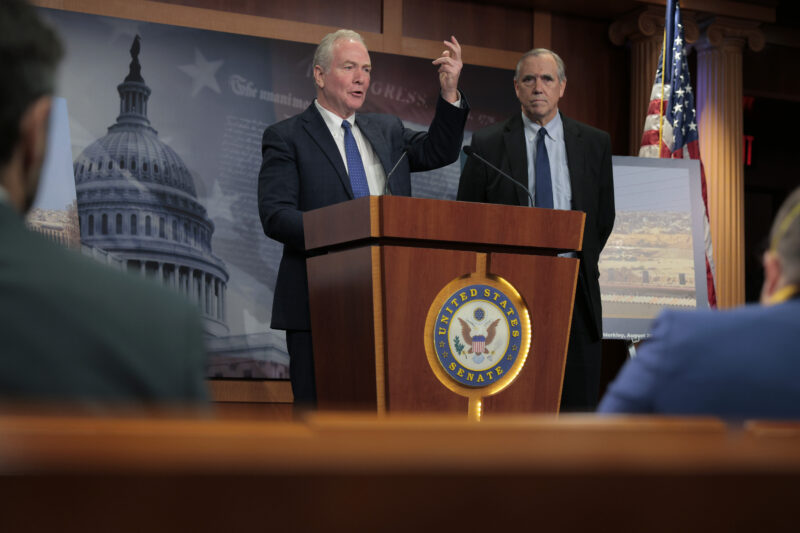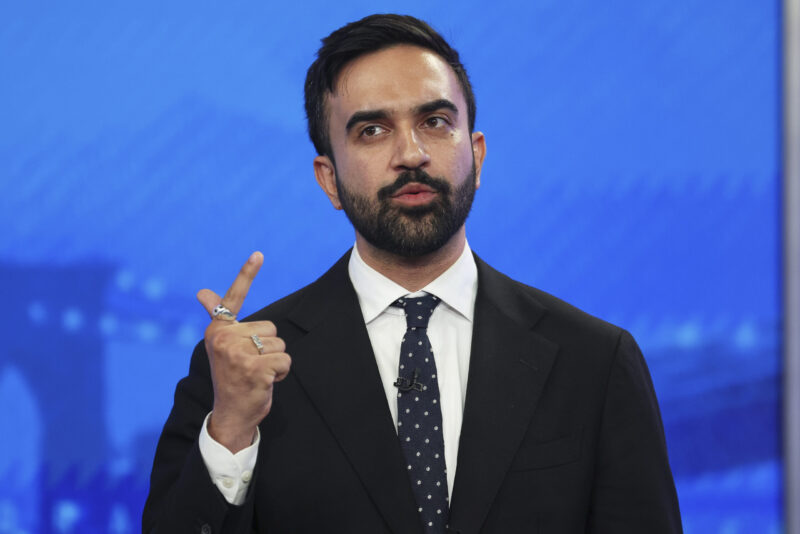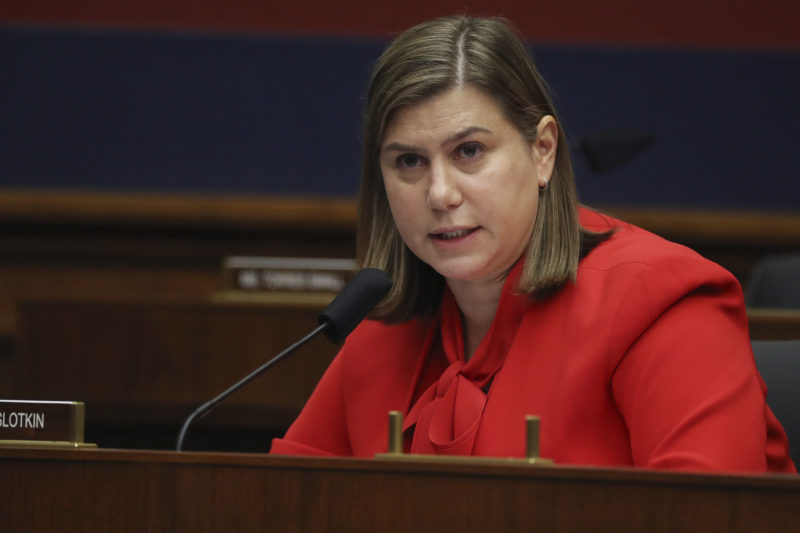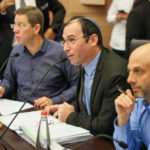Rosen, Lankford host Senate roundtable on campus antisemitism
The event comes after the two unsuccessfully pressured Sen. Bernie Sanders’ committee to call a hearing on campus antisemitism

U.S. Senate
Sens. Jacky Rosen (D-NV) and James Lankford (R-OK)
Sens. Jacky Rosen (D-NV) and James Lankford (R-OK), the chairs of the Senate Bipartisan Task Force for Combating Antisemitism, hosted a roundtable with six Jewish students from around the country on Thursday morning to discuss campus antisemitism.
The event came following pressure — thus far unsuccessful — from the two lawmakers, and others, for the Senate Committee on Health, Education, Labor and Pensions, led by Sen. Bernie Sanders (I-VT), to hold a public hearing on campus antisemitism. The Senate has held no formal hearings on the issue since Oct. 7.
Lankford told Jewish Insider in May that Sanders had told him that the committee would hold a hearing on antisemitism and Islamophobia, but that has yet to materialize. Sanders did not respond to a request for comment.
Rosen said in a statement that the roundtable aimed to discuss students’ experiences and hear feedback on what the government can do to address campus antisemitism and “hold universities accountable.”
“As we approach the fall semester when students will return to campus, I’ll continue working in a bipartisan way with Senator Lankford and our Senate Bipartisan Task Force to Combat Antisemitism to keep students safe from hate,” Rosen continued.
“I applaud the courage of the students who shared their personal experiences with antisemitism with me and Senator Rosen today,” Lankford said in a statement. “I am encouraged by their resolve to shine a bright light into the deep darkness of antisemitism on some American university campuses.”
Lankford later shared some of the students’ stories in remarks on the Senate floor, including harassment and physical attacks. He called on Senate Majority Leader Chuck Schumer (D-NY) to pass the Antisemitism Awareness Act before students return to campus.
Nathan Diament, the executive director of public policy for the Orthodox Union, who attended the event, said that the students in attendance “each recounted very, very distressing stories about each of their campuses.”
“Unfortunately, [the roundtable] also highlights the fact that the relevant committees, namely the Senate Education Committee, chaired by [Sen.] Bernie Sanders and the Judiciary Committee, chaired by Sen. [Dick] Durbin, have refused to have hearings, let alone consider any legislation to respond to the situation,” Diament said. “And that’s just shameful.”
Durbin did not respond to a request for comment.
Amy Spitalnick, the CEO of the Jewish Council for Public Affairs, who also attended the event, said, “The most important thing, as many of [the students] said, is that we are now less than a month out from students returning to campus, and there needs to be a game plan, not just from the federal government on antisemitism writ large.” but also from campus administrations to “make sure policies are actually going to be enforced.”
Both Diament and Spitalnick said that the students had urged Congress to pass legislation to combat antisemitism. Spitalnick highlighted the Countering Antisemitism Act and the need for additional funding for the Department of Education’s Office for Civil Rights.
Luda Isakharov, a recent University of Oregon graduate, thanked Rosen and Lankford in a statement for introducing the Countering Antisemitism Act, “which takes tangible action to address some of the issues I talked about today,” and asked lawmakers to “work together to get this legislation to the finish line and to deliver for Jewish students who are nervously anticipating entering another challenging academic year this fall.”
Skyler Sieradzky, a recent George Washington University graduate, said, “Congress needs to ensure that administrations uphold their own policies.”
Rennie Cohen, a law student at the University of Oklahoma, said that he saw a march on campus with Hezbollah flags chanting “glory to the martyrs,” a sight she said reminded her of images from Nazi Germany.
“I fear that if we do not resolve the issue of antisemitism on campus today, it will open the door for students from other racial and religious groups to be treated as second-class students on college campuses tomorrow,” Cohen said.
Mitch Wolf, a Rutgers University student, was present in a class building when demonstrators stormed into it and occupied it.
“Administrators need to acknowledge the campus climates they have fostered and take responsibility for them,” Wolf said. “True change must begin at the top, with administrators ensuring the protection and safety of all Jewish students, within the university community.”
Noa Fay, a graduate student at Columbia University, said the “movement perpetrated by college students must be dismantled if only for the fact that it is fundamentally rooted in hatred.”
She said that change is necessary to prevent schools from “fall[ing] beyond repair” and restoring them to “places where everyone is accepted and defended.”
Jeremy Davis, a recent Ohio State University graduate, said, “it’s time to hold universities accountable and restore integrity to higher education. We must adopt policies that translate into positive cultural shifts to prevent further antisemitic campus culture.”




